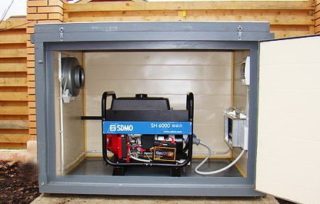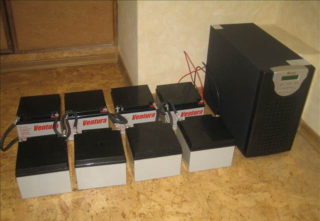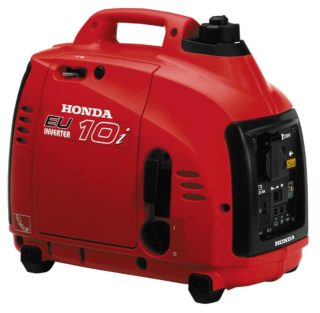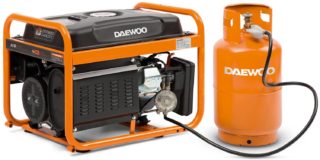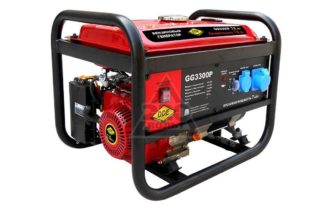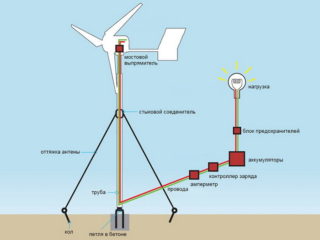Natural factors, lack of investment, annual aging of fixed assets of power supply systems often lead to breakdowns and power outages. This usually happens in small towns, rural areas. Therefore, for a country cottage, it is necessary to provide a backup source of electricity. In a modern house, everything works with electricity. If the boiler, water supply is disconnected in the absence of the owners, in winter, in cold weather, the cottage will be substantially damaged. Therefore, it is impossible to do without backup power supply of a country house. It is necessary for power surges above the norm. Stabilizers do not cope with them, household equipment fails. A reliable uninterruptible power supply or inverter will automatically maintain the set value.
What time should the source count
A competent approach to the uninterrupted power supply of a private house should take into account time periods, the frequency of power outages. Short and medium periods of lack of electricity are due to accidents or the vagaries of the weather. Lasts from 12 to 24 hours. Long, several days, can occur in natural disasters. The equipment should immediately respond to a power outage, to ensure the operation of all systems in the house or at the cottage for the right time.
For the correct choice of power source, you must consider:
- duration of power outages in a given area;
- what type of electricity consumers in the house, if there is equipment that needs three phases and 380 V - a single-phase source with 220 V will not work here;
- the magnitude of the currents that the equipment uses in normal and peak mode.
If in doubt, you can invite an electrician who will take into account all the important points and help you choose equipment.
Ways to connect backup power sources
Uninterrupted systems for providing backup power supply are one- and two-stage. A single-stage circuit includes an inverter and batteries of sufficient power to last for several hours. Batteries are charged from the mains. In the event of an emergency shutdown of the central power supply, the system instantly automatically switches to the power mode of the house. Hybrid inverters add power. If 5 kW comes from the network, from 9 to 29 kW can be output.
For long power outages, a two-stage method is suitable. The system consists of an uninterruptible power supply (UPS), battery, generator. Generator sets work on gas, gasoline, diesel fuel. The energy used is wind and sun.
In the backup system, vital equipment is connected - heating, water supply components, emergency lighting, one or two outlets for household appliances. The minimum power supply for a house with an area of up to 300 square meters will be 2 kW.
You can purchase a backup power supply system to connect all the equipment of the cottage. The load will depend on its equipment and cost.
For a small house, the best option is to use compact and inexpensive sources of electricity.
- The inverter already has a function of automatic inclusion.With the battery pack it is placed in the utility room. It works without recharging for 24 hours. It is not cheap, but noiseless, does not require additional investments and supervision.
- An inexpensive compact gasoline, diesel generator can simply be rolled out of the house, or placed in an open street annex. They are not equipped with an automatic start-up circuit, but are turned on manually. Have a small cost. Well suited for a country house.
- If the housing has a centralized gas supply, a gas generator can be installed in a separate room or on the street.
In stationary backup power supply systems of large country cottages, generators, solar panels, and geothermal sources are used.
Varieties of generators
When choosing a generator for an autonomous backup power supply source, it is necessary to take into account not only the cost of a set of equipment, but also the price of fuel. The parameters of the place for placement and operation must comply with the rules and regulations. This is also a considerable investment.
Gas generators
Can be placed in an unheated room. Create little noise. For liquefied gas, special containers are needed - a gas holder or a cylinder. One cylinder of 50 liters is enough for 15 hours of power supply of a small house. If you use main gas, you must correctly make exhaust ventilation in the room. To issue and coordinate with the gas services a package of documents for connecting the facility.
Gasoline generators
Advantages: the ability to work at sub-zero temperatures, the availability of fuel. They have a motor resource for 5-7 hours of work, then a break of 1 hour is needed. Automation is not included in the basic delivery package. It needs to be bought to install, to configure separately. No operating permit is required.
Diesel generators
They can work in any weather conditions. Economical - fuel consumption is 1.5 times less than gasoline. Operating time - 6-15 hours, depending on the capacity of the fuel tank. Disadvantages: noise, exhaust fumes, expensive maintenance compared to gasoline. To start on frosty days, it is necessary to provide for the storage of fuel in a warm room.
Unconventional power sources
These include wind generators that will only work in places where the wind is constantly blowing. Geothermal installations using hot water from the bowels of the earth. But such water is saturated with minerals and toxins. You can not merge it into open sources.
Solar panels
Backup power supply of a country house using solar panels is an expensive, but good solution to the problem. The equipment is environmentally friendly, silent. The kit consists of modules, controller, inverter unit, batteries. The disadvantage is the high price.
There are options for the combined use of different backup power sources.
When planning the installation of uninterrupted power supply at home, it is necessary to take into account all factors of the system: the cost of equipment, fuel, maintenance, installation, additional costs.
